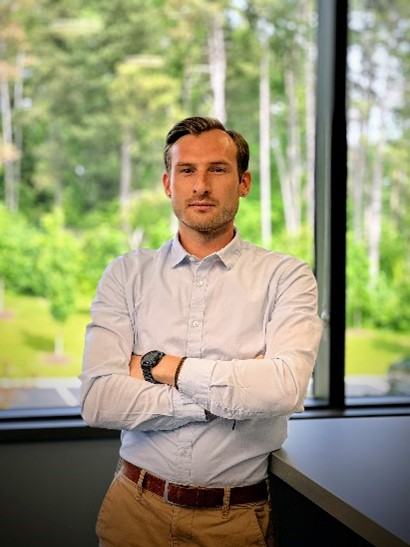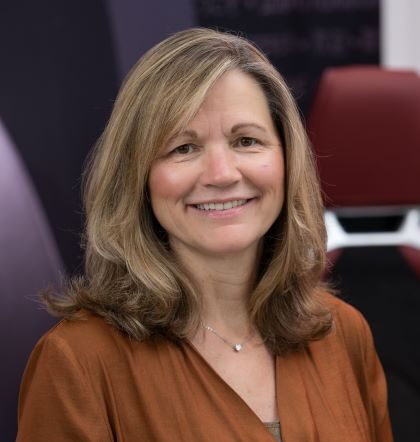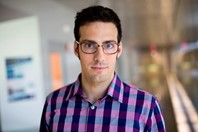This project is an opportunity to develop creative thinking skills while implementing and validating engineering principals and theories of fluid dynamics in a ventilated automotive seat. Students on the Magna team will develop a complete seat ventilation system model, supported both by theory and experimental data, that predicts the thermal comfort performance of future seat designs.
Abstract:
Magna is a leading global automotive supplier, with 340 manufacturing facilities and 89 product development, engineering, and sales centers in 28 countries. We are an innovative leader in the development and manufacturing of high-quality complete seating systems. Ventilated seats are becoming increasingly popular in the market. Ventilation systems are quite complex, containing a large number of elements including blowers, motors, plenums, foam, ducting, dispersion materials, and trim. Each seat design is built from a unique combination of these elements.
Students on the Magna team will characterize the components of the ventilation system using theoretical modeling and experimental measurements. They will develop and validate a model that predicts the airflow rate resulting from a specific system build. This will allow Magna engineers to reduce development time for new vent system innovations, by eliminating some design work that currently requires fabrication of physical prototypes.
Impact:
A model that can effectively characterize air flow rate through a system will allow Magna engineers to quickly and cost effectively evaluate new innovative strategies for configurations of seat ventilation systems without physically building systems.
Fluid Dynamics Modeling (2-3 Students)
Specific Skills: Solid understanding of basic fluid dynamics. Experience in fluid dynamic simulation.
Characterization of dynamic behavior.
Likely Majors: ME, ChE, AERO, Physics
Thermodynamics Modeling (2-3 Students)
Specific Skills: Solid understanding of basic thermodynamics. Experience in thermodynamic simulation.
Characterization of dynamic behavior (mass and heat transfer).
Likely Majors: ME, ChE, AERO, Physics
Materials Testing and Modeling (1-2 Students)
Specific Skills: Theory based materials modeling and experimental properties measurement.
Likely Majors: MSE, ChE, ME, Physics
Sponsor Mentor
 Avery Folk
Avery Folk
Lead Engineer – Business Development Engineering, JIT applications
Avery graduated from the University of Regina with a BASc in Industrial Systems Engineering in 2013, and then moved to Michigan to begin working at Magna Seating in 2014 as a Product Engineer within the Structural Products group. He later transitioned into the Mechanisms Engineering team, followed by Innovation and R&D, and then JIT / Seat Complete Applications Engineering, before eventually moving to the Business Development Engineering Department in 2022. Currently, he is working on the development of new business with Stellantis, and continuing efforts related to future product and process cost optimizations using innovative strategies. Avery has strong interests and expertise in automotive mechanics, fabrication, electronics, and new technologies, as well as health, fitness, and outdoor activities.
Executive Mentor
 Cindy Puchalski
Cindy Puchalski
Director of Engineering
Cindy Puchalski has over 20 years of automotive industry experience (10 years with Magna). Cindy started her career at General Motors as a Product Engineer. She held various engineering roles at Johnson Controls and Magna. She transitioned from engineering into Program Management for 6 years. Cindy currently is the Director of Engineering, leading the global Innovation projects.
Faculty Mentor
 Jesse Capecelatro
Jesse Capecelatro
Jesse is an Associate Professor in the Departments of Mechanical Engineering and Aerospace Engineering at the University of Michigan. Prior to joining Michigan in 2016, he was a postdoc at the University of Illinois Urbana-Champaign. He received a B.S. from SUNY Binghamton in 2009, a M.S. from the University of Colorado Boulder in 2011, and a Ph.D. from Cornell in 2014. His research is broadly under the realm of fluid mechanics, with an emphasis on multiphase flow, turbulence, reacting flows, and high-performance computing. Applications include renewable energy, propulsion, disease transmission, and space exploration.
Citizenship Requirements:
- This project is open to all students
- International students on an F-1 visa will be required to declare part-time CPT during Winter 2023 and Fall 2023 terms.
IP/NDA: Students will sign IP/NDA document(s) that are unique to Magna.
Internship/Summer Opportunity: No summer activity will take place on the project.
